Corporate members of the Sustainable Aviation Buyers Alliance (SABA) have committed to purchasing sustainable aviation fuel certificates (SAFc) for nearly 50 million gallons of SAF, with an investment value of close to $200 million. The multi-year collection of deals, which involves 20 corporate customers, four fuel providers and three airlines, has the potential to reduce around 500,000 tons of CO2e. Purchasing SAF certificates enables corporate travellers to invest in SAF and capture the environmental benefits, allowing them to make GHG emissions reduction claims on their climate disclosures, while the physical SAF flows to an aircraft operator. SABA is working with airline partners Alaska, JetBlue and Southwest, securing certificates through SkyNRG and purchasing directly from fuel providers including World Energy.
“Creating an ecosystem that equips companies from all economic sectors to access more SAF is part of our mission,” said Adam Klauber, VP Sustainability and Digital Supply Chain at World Energy, the world’s first commercial-scale SAF producer. “We are proud to collaborate to help Scope 3 customers achieve their net zero goals and dramatically increase SAF production with these long-term contracts.”
SABA said multi-year deals were essential in driving scale in the SAF market as long-term certainty about demand helped fuel producers secure financing for their projects and so bring more SAF to market.
“SABA plays a critical role in helping companies identify and purchase the highest-integrity sustainable aviation fuels to accelerate progress towards net zero goals,” said Elizabeth Sturcken, Managing Director at Environmental Defense Fund (EDF), which co-founded the alliance.
Different fuel types are being purchased through the set of agreements, including power-to-liquids, or e-fuels, produced from renewable electricity and CO2 by startup Twelve, and offered in partnership with Alaska.
As global demand for aviation and SAF grows, partners like SABA will be increasingly crucial to bring the full range of aviation stakeholders to the table,” said Nicholas Flanders, co-founder and CEO of Twelve. “Innovative power-to-liquid fuels will deliver deeper emissions reductions but need the support of airlines and corporations in order to scale. We’re proud to join with SABA and its collective of forward-minded corporate customers, airlines and fellow fuel providers to deliver E-Jet fuel and help pioneer the market for high-integrity SAF certificates.”
The new RFP multi-year purchase follows a pilot SAFc procurement for nearly 850,000 gallons of SAF last year. By expanding the process to include multiple fuel providers and airlines, customers are able to invest in a range of fuel types and help bring new technologies to market, said SABA.
“As we continue to optimise our business travel emissions, we recognise the crucial role that lower carbon air travel plays in meeting global climate targets,” commented David Webb, Chief Sustainability Officer of BCG, a SABA member. “The SAF industry is rapidly evolving and we are enthusiastic about its potential to scale and support a more sustainable, global economy.”
EDF and SABA’s other co-founder, RMI, have developed the digital SAFc Registry that was launched during COP28 in Dubai last December, which is being used as the central platform to record the certificates purchased through the RFP. Building on industry best practices, the registry creates an auditable ledger to ensure the certificates realise their intended environmental impact and can be claimed towards emissions reduction goals.
“The SAFc Registry plays a critical role in the SAF ecosystem by bringing greater consistency and transparency to SAFc transactions, building trust along the SAF value chain and helping send a strong demand signal for the low-carbon fuels needed to decarbonise the aviation sector,” said Bryan Fisher, Managing Director at clean energy non-profit RMI.
Plans for a new collective procurement process are underway, although SABA cautioned available SAF volumes that met its requirements “came nowhere close” to meeting the full demand from its customers in 2024 and 2025.
“The only way to drive structural change in hard-to-abate sectors like aviation is to shake up existing business models,” said Kim Carnahan, Head of SABA’s Secretariat and CEO of Neoteric Energy and Climate. “The recent announcement from the Science Based Targets initiative opening the door to the use of market-based approaches to address Scope 3 emissions only elevates the importance of SABA’s book-and-claim system as an innovative and environmentally robust avenue for customers to drive aviation decarbonisation.”
SABA is hosting a webinar on May 1 that will discuss the latest multi-year RFP SAFc procurement. Details here
Photo: Alaska Airlines


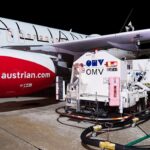
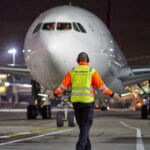
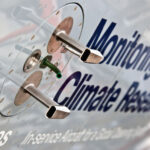


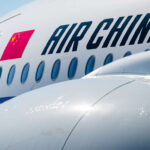
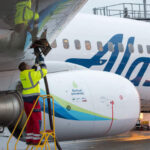
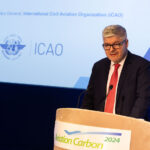
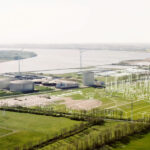
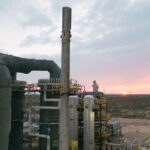

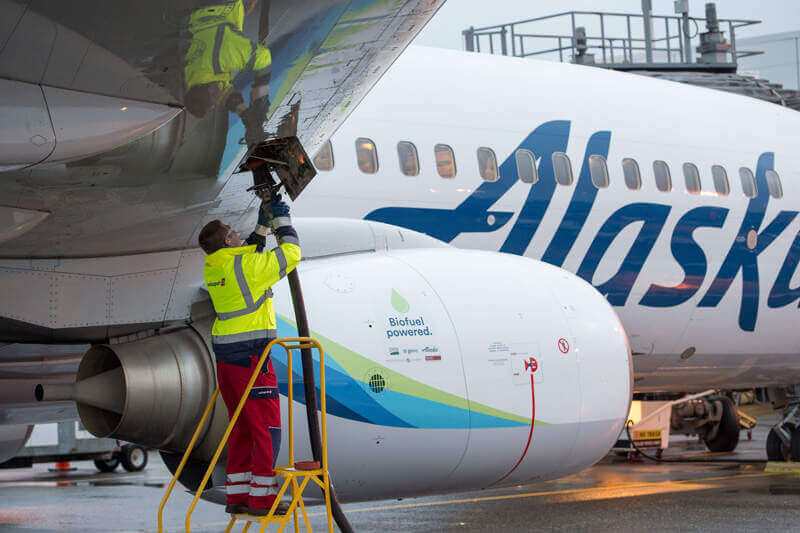
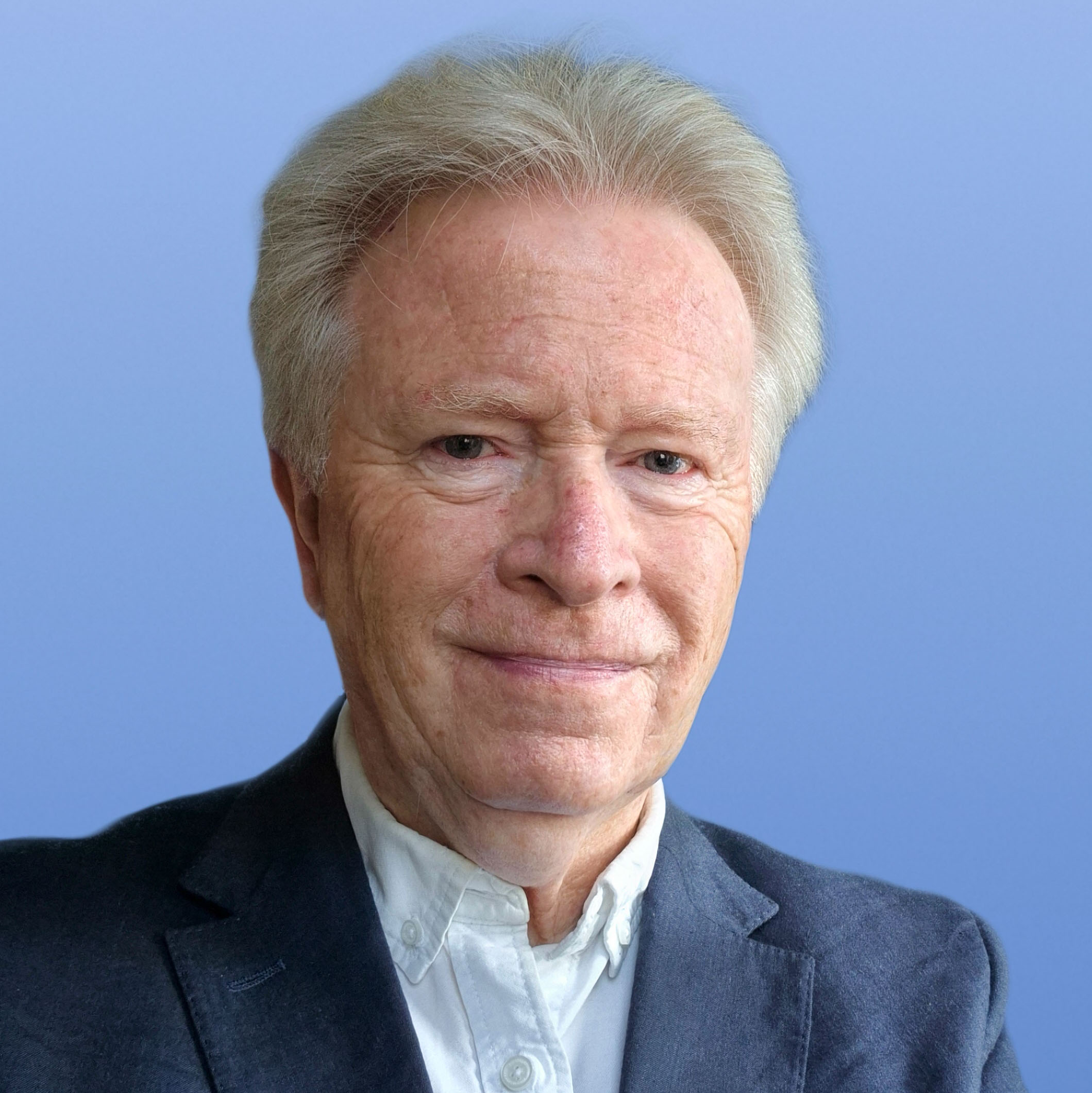

More News & Features
Progress on decarbonising the airline sector has been slow this year, says IATA chief
EASA releases status report on Europe’s SAF production and readiness to meet blending targets
Carbon reduction consultancy Watershed facilitates SAF certificate deals through SABA
New partnerships formed to drive e-SAF production in Nordic markets
IAG continues to go big on e-SAF as it inks 10-year offtake agreement with Infinium
US on the pathway to achieving its 2030 SAF Grand Challenge target, says DOE report